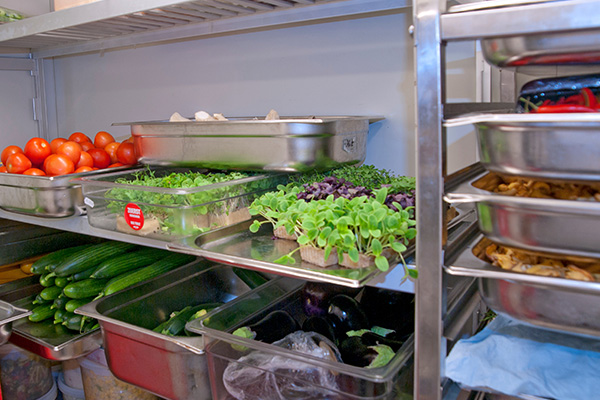
|
Food Recalls: What Restaurants Need to Know and How to Handle Them
August 06, 2024

Food recalls happen. In 2024, the FDA issued over 50 food recalls involving kimchi, plums, soybean sprouts, snack bars, and more. For restaurants, it’s crucial to have all the info on food recalls as they happen and best practices for protecting their brand and keeping customers safe.
What is a Food Recall?
Food recalls involve removing foods from the supply chain that violate the U.S. Food and Drug Administration’s (FDA) regulations. Any participant in the food supply chain should pay keen attention to recalls, as the ingredients could pose serious health risks. For restaurants, it’s especially crucial to be aware of recalls, as tainted food can affect not only their customers but also their reputations.
How to Stay Ahead of an FDA Recall
As a restaurant owner, you can take several steps to protect yourself from ingredient recall issues.
Work with Professional Restaurant Suppliers to Ensure Food Safety
Reputable food suppliers should always have food safety and health concerns as a top priority. Purchasing from wholesale bulk grocers that store foods safely and keep meticulous supply records is one of your best lines of defense to prevent recall issues.
Develop a Recall Plan
Sometimes, an ingredient recall is unavoidable. Mitigate hassle and handle the situation efficiently and correctly by having a recall plan in place.
- Identify the recalled items and immediately remove them from your inventory rotation.
- Label the items and securely store them away from all other ingredients, equipment, utensils, and service items.
- Inform your staff to refrain from using the recalled items.
- Follow all vendor information regarding the disposable or isolation of the ingredients.
- Deep clean and sanitize your kitchen and service areas.
Train Your Entire Staff
Go over the recall plans with your kitchen crew and service staff to ensure everyone is prepared should a recall happen. Assign particular team members to handle specific tasks, such as notifying customers, pulling contaminated products, etc.
How Should Restaurants Manage Food Recalls?
If you receive a notice about a food recall that affects one of your food items, follow these best practices to make recall management easy and efficient.
Identify the Recall Type
There are three main classes of recalls.
- Class I: The most serious type of recall issued when there's a high probability that the product will cause serious health consequences or death, often due to contamination or undeclared allergens.
- Class II: Issued for products that may cause temporary or reversible health effects, or a low risk of serious consequences. Examples include minor labeling errors or low-risk contamination.
- Class III: Food recall involves products that are unlikely to cause adverse health effects but violate FDA regulations, such as minor labeling issues.
Collect Product Details
Gather all the information related to the recall, identify which ingredients are contaminated, and determine what dishes might have been impacted.
Take Immediate Action
Stick to your recall plan, and spring into action by pulling all recall items. Follow communication change of commands to ensure everyone—from employees to customers, investors, and partners—is notified and given the appropriate course of action.
Acquire Replacement Ingredients or Temporarily Pivot Your Menu
Work with your restaurant supplier and determine when to expect a replacement for affected items. In some cases, you might need to rethink your menu until staple ingredients are available.
Choose US Foods CHEF’STORE as Your Restaurant Supply Partner
CHEF’STORE provides our culinary partners with high-quality bulk restaurant supplies and exceptional business resources.
Stop by one of our locations or use our third-party delivery options.